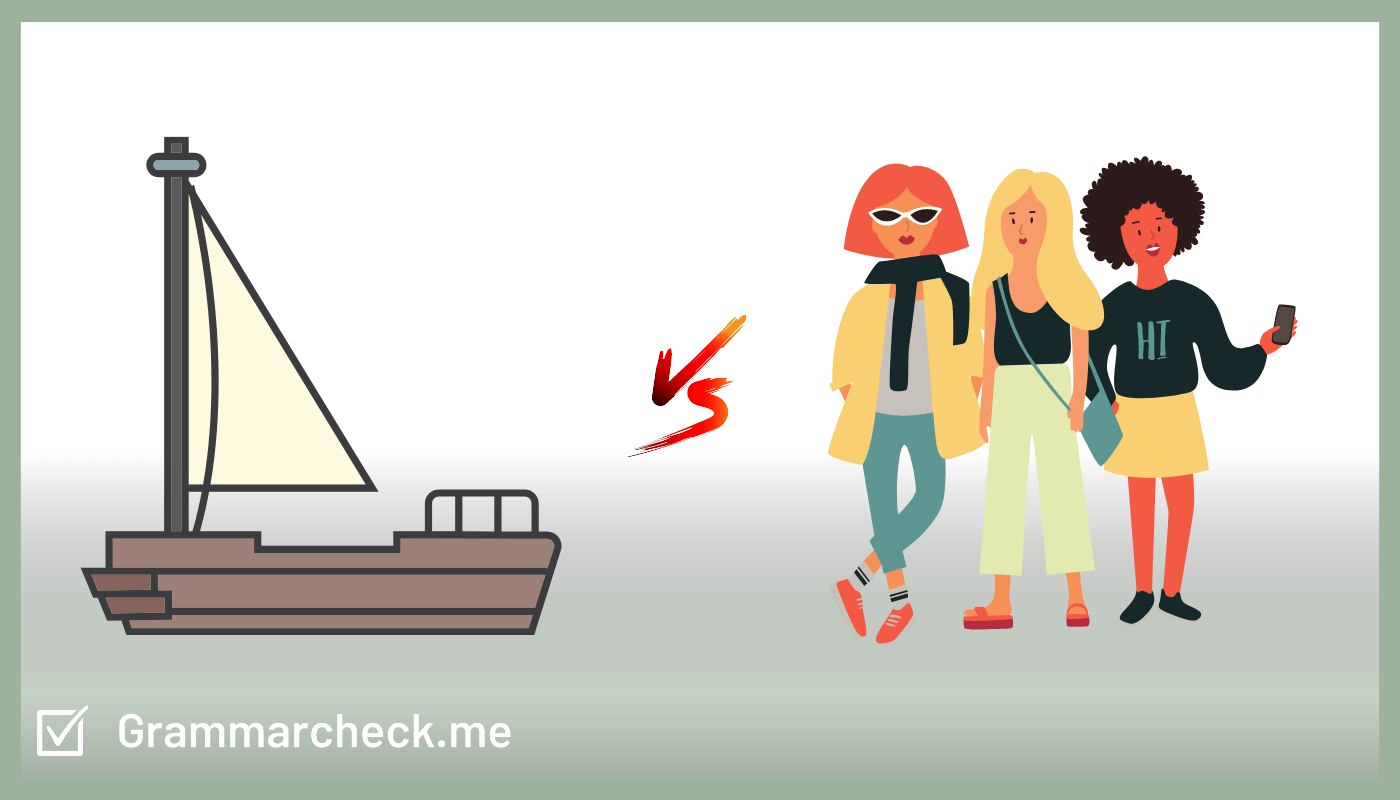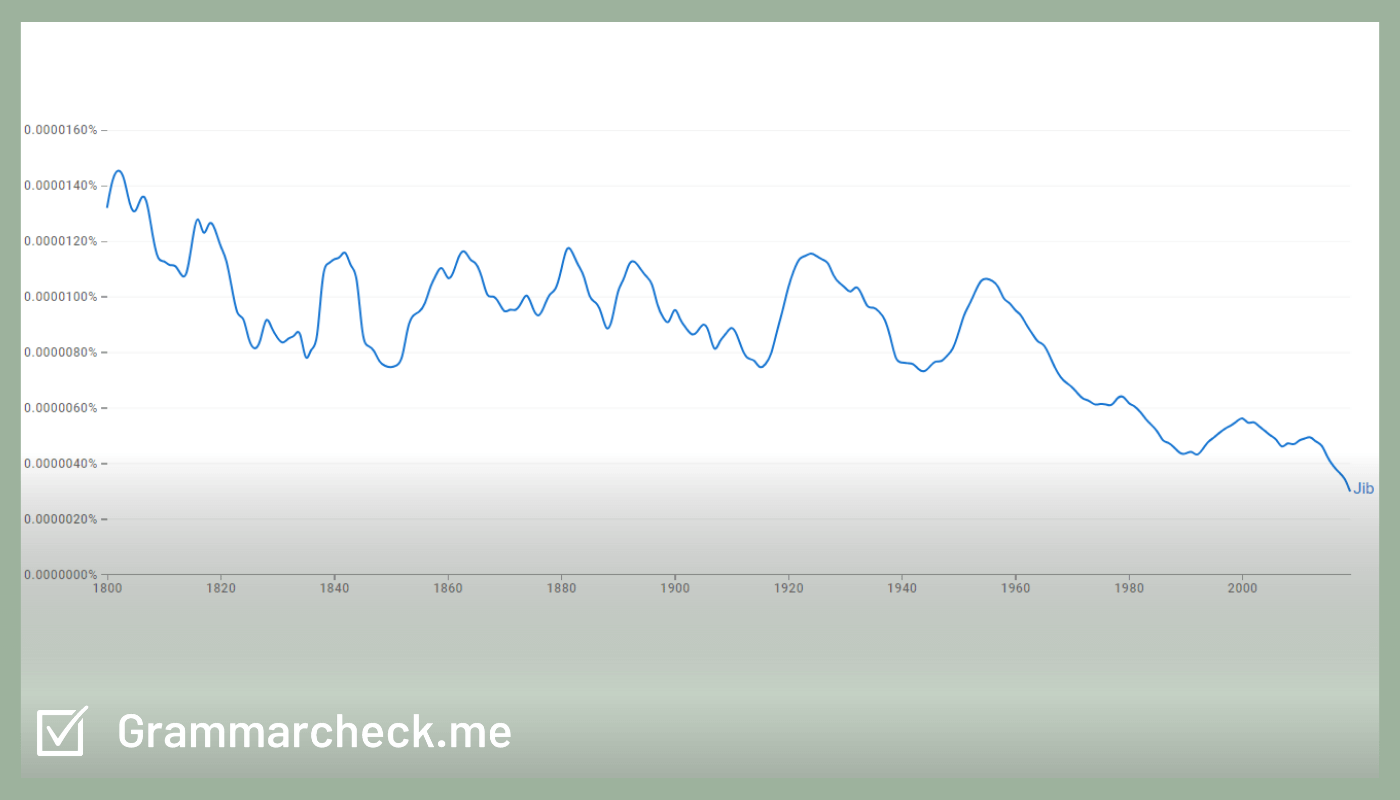“I like the cut of your jib” is used to compliment someone’s appearance, behavior, or character. It is a popular idiomatic expression that show’s approval of another’s physical appearance or attitude.
A jib is a small part of a sailing ship that is used to harness the power of the wind. However, this expression does not literally refer to a component on a boat.
The origin of the phrase “I like the cut of your jib” dates back to the early 1800s. It has always maintained a consistent definition throughout the years.
Some common synonyms for this phrase include “I’m fond of your demeanor”, “I appreciate your style”, and “I’m taken by your attitude”. In this post, we’ll further explore the meaning of “I like the cut of your jib”, it’s origins, and how to use it in a sentence.

What Is A “Jib”?
A jib is a triangular sail on the foremast of a boat. A jib sail is one of the primary sails used to harness the wind’s power and propel the boat forward. It plays a crucial role in controlling the balance and maneuverability of the vessel, allowing sailors to adjust its angle relative to the wind to optimize the boat’s performance.
What Does “I Like The Cut Of Your Jib” Meaning?
“I like the cut of your jib” means that someone likes or is expressing approval for someone’s overall demeanor, personality, or character. This phrase is an informal compliment that is often used to convey a positive impression of someone.
Although this phrase contains the nautical term “jib” it does not share the same literal meaning.
In modern usage this phrase is used in casual conversations. It is a common way to convey respect for an individual’s qualities, style, or way of carrying themselves.
What Is The Origin Of “I Like The Cut Of Your Jib”?
The idiomatic expression “I like the cut of your jib,” originates in the early 1800s. Back in the early 1800s, ships’ jibs came in various cuts, each affecting how a ship sailed. Therefore the phrase started as a way to compliment the performance of a ship. However, it transformed in to a compliment used for people. Just like we saw with the phrase “I’m fishing in the dark“, many sayings start out with alternate meanings.
What Are Synonyms For The Phrase “I Like The Cut Of Your Jib”?
Below are a list of alternate phrases that can be used as synonyms for the saying “I like the cut of your jib”.
- “I’m fond of your demeanor.”
- “I appreciate your style.”
- “I’m taken by your attitude.”
- “I’m drawn to your personality.”
- “You’ve caught my eye.”
- “I’m impressed with your ways.”
- “Your mannerisms resonate with me.”
Just like we learned in our analysis of the expression “that being said” synonyms can often be a great way to enhance the quality of your writing.
How Do You Use “I Like The Cut Of Your Jib” In A Sentence?
Here are 5 example sentences that demonstrate how to use the phrase “I like the cut of your jib” correctly.
- As they exchanged ideas during the conference, Sarah complimented John’s insightful contributions, saying, “I like the cut of your jib.”
- Walking into the interview room, the applicant received a warm smile from the hiring manager, who remarked, “I like the cut of your jib; let’s begin.”
- After observing how confidently Mark handled the difficult situation, his boss turned to him and said, “I must say, I like the cut of your jib, you’re a valuable asset to the team.”
- During the team-building workshop, Emily’s creative approach caught the attention of her colleagues, and one of them playfully mentioned, “Looks like we’ve got some innovative thinkers here—I like the cut of your jib.”
- As the director reviewed the pitches from the advertising team, she pointed to one and commented, “This concept stands out; I like the cut of your jib—keep up the great work.”
Just like we saw in our breakdown of the expression “if wishes were fishes we’d all swim in riches“, writers need to know when to use informal sayings!
Popularity Analysis
We can see from Google’s N-Gram data shows that the word “jib” has declined in popularity consistently over the last 100 years. However, the idiomatic expression “I like the cut of your jib” has become more popular in recent years. This phrase is most commonly used as a compliment in informal contexts in the English language. Just like we saw with other idiomatic sayings like “top of the morning“, we know that people love to use them in casual contexts.

Are There Alternate Forms Of “I Like The Cut Of Your Jib”?
There are several different forms of the phrase “I like the cut of your jib” that can be used depending on the context. Here are several different forms of the phrase.
- I like the cut of her jib
- I like the cut of his jib
- I like the cut of their jib
Just like we saw in our analysis of the phrase silly goose meaning, it can be beneficial to use various forms of an expression. Otherwise, the writing will become repetitive.
What Is The Opposite Of “I Like The Cut Of Your Jib”?
Here are a list of phrases that have the opposite meaning of “I like the cut of your jib”.
- “I’m not impressed with your attitude.”
- “Your style doesn’t sit well with me.”
- “I’m not fond of your demeanor.”
- “I don’t connect with your personality.”
- “Your behavior leaves much to be desired.”
Frequently Asked Questions
“I Like The Cut Of Your Jib” can not be used in formal contexts. This phrase is an idiomatic expression that should be used in a more casual context.
Yes, “I Like The Cut of Your Jib” is considered a slang expression that means someone admires or approves of another person’s physical appearance or attitude.
The Bottom Line
By now you should be an expert on the phrase “I like the cut of your jib”. The literal meaning of a jib is the front most sail on a boat. However, this idiomatic phrase means that you like someone’s attitudes, style, or physical appearance. It is used as a compliment in a variety of different circumstances. If you need help with other grammar rules like this, consider using our own Sentence Checker to make things easier for you.
